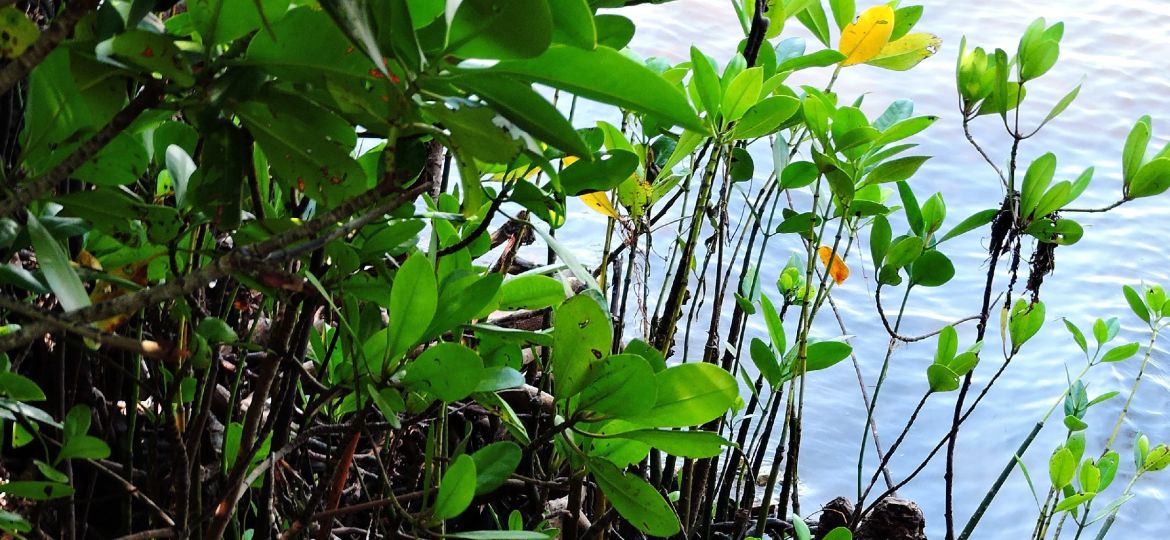
The superyacht community shares a deep and unique relationship with the world’s oceans, making their health critically important to us. This World Oceans Day, let us explore how we can contribute to mitigating the declining health of our oceans through innovative solutions and proactive steps. Read on for our top suggestions on how we can all help preserve the health of our oceans.
Blue Carbon Projects: A Deep Impact on Ocean Health
One of the most effective ways to offset a superyacht’s greenhouse gas (GHG) emissions is through Blue Carbon projects. These projects focus on marine and coastal ecosystems such as mangroves, tidal marshes, and seagrasses, which are exceptional at absorbing and storing carbon dioxide (CO2).
Unlike terrestrial forests, which are vulnerable to deforestation and fires, Blue Carbon ecosystems store carbon securely underwater in roots and soil, preventing it from re-entering the atmosphere. This efficient carbon sequestration is vital in combating climate change and ocean acidification, both of which threaten marine biodiversity and ecosystem health.
Supporting Blue Carbon projects not only helps in reducing CO2 but also supports coastal communities by enhancing fisheries, providing storm protection, and improving water quality. By investing in Blue Carbon credits, the superyacht community can play a pivotal role in these global conservation efforts. Find out more.
Mangroves: Safeguarding Carbon and Communities
Yacht Carbon Offset is proud to partner with two exemplary mangrove projects: Mikoko Pamoja and Vanga Blue. These initiatives not only capture significant amounts of CO2 but also offer numerous social and environmental benefits.
Mikoko Pamoja
This pioneering project in Kenya safeguards 117 hectares of mangrove forest, capturing around 2,000 tonnes of CO2 annually. Beyond its environmental impact, Mikoko Pamoja supports local communities by providing alternative resources like Casuarina trees for fuelwood and building materials, reducing pressure on mangrove forests. The project also generates sustainable income through activities such as beekeeping and ecotourism, enhancing community livelihoods. Find out more.
Vanga Blue
Located in southern Kenya, Vanga Blue protects and restores 460 hectares of mangrove forest. This project, validated under the Plan Vivo Carbon Standard, aims to sequester approximately 4,500 tonnes of CO2 annually. It also contributes to community development by building infrastructure, supporting local education, and promoting sustainable livelihoods. Find out more.
Both projects are driven by the Association for Coastal Ecosystem Services (ACES), demonstrating the power of community-led conservation
Plastic-Free Seas: Reducing Plastic Waste in Our Oceans
Plastics pose a significant threat to marine life and ocean health. Each year, millions of tonnes of plastic waste enter our oceans, causing extensive damage to ecosystems and wildlife. The superyacht community can lead by example in reducing plastic use and promoting sustainable alternatives.
Over 8 million tonnes of plastic are dumped into the ocean annually. By 2050, there could be more plastic in the ocean than fish by weight if current trends continue. Adopting practices like using reusable items, avoiding single-use plastics, and supporting clean-up initiatives can make a substantial difference.
Ocean-Based Charities: Contributing to Long-Term Solutions
Beyond individual actions, supporting ocean-focused charities can have a lasting impact on marine conservation. Yacht Carbon Offset collaborates with several esteemed organisations dedicated to protecting ocean health.
Blue Marine Foundation
Focused on creating marine protected areas and promoting sustainable fishing, Blue Marine Foundation’s efforts include the Solent Oyster Restoration Project in the UK, aiming to revive native oyster populations.
The Ocean Foundation
This foundation addresses critical issues such as climate change, ocean acidification, and plastic pollution. Its comprehensive approach ensures the sustainable future of marine ecosystems.
Association for Coastal Ecosystem Services (ACES)
ACES promotes community-led initiatives to conserve blue carbon ecosystems. By working closely with local communities, ACES helps restore mangrove forests and seagrass meadows, contributing to climate resilience and biodiversity conservation.
We encourage our clients to support these valuable initiatives and consider donating alongside their carbon-offsetting efforts. Every contribution, no matter how small, helps foster a healthier, more sustainable ocean environment.
This World Oceans Day, let us reaffirm our commitment to preserving the health of our oceans. By investing in Blue Carbon and mangrove projects, reducing plastic waste, and supporting dedicated ocean charities, the superyacht community can make a tangible impact on marine conservation. Yacht Carbon Offset is delighted to offer solutions that align with our shared passion for the sea, ensuring that future generations can enjoy the beauty and bounty of our oceans. If you would like to explore these solutions further, please don’t hesitate to get in touch with us today.

